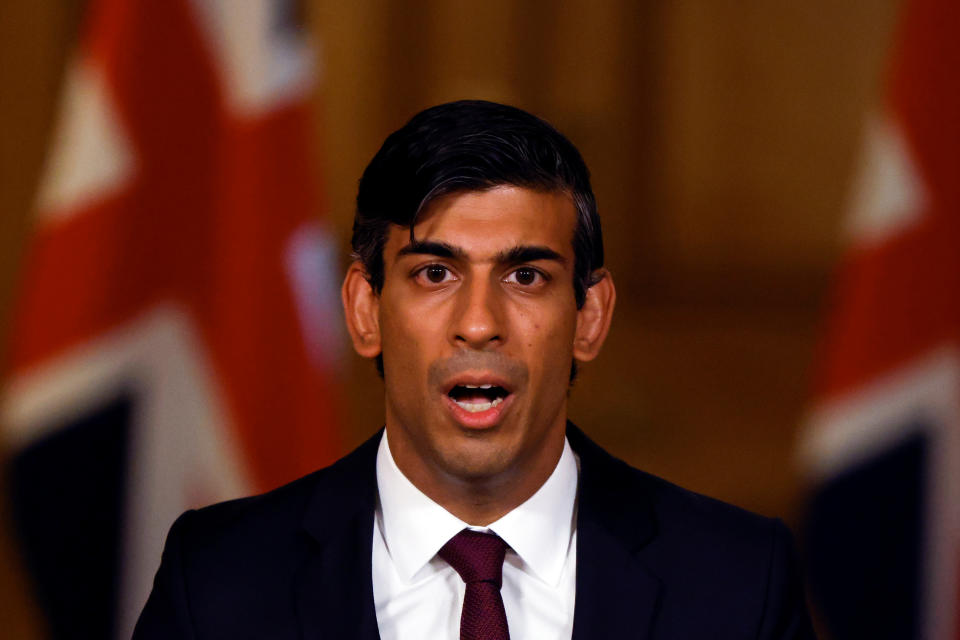Coronavirus: UK government debt at highest level in 60 years
Watch: What is a budget deficit and why is it important?
UK government borrowing hit a record high for a sixth month in a row in September, taking public debt to its highest level in 60 years.
Official figures show Britain’s debt pile now stands at almost £2.1tn ($2.7tn), dwarfing the entire economy at 103.5% the size of GDP. It has risen by £259.2bn since April, with borrowing plugging the gap as government spending has soared while tax receipts have plummeted in the wake of the coronavirus crisis.
The data was published by the Office for National Statistics (ONS) early on Wednesday.
Borrowing came in at £36.1bn in September alone, the third highest level since records began in the early 1990s and higher than expected by analysts. Tax receipts were 13.4% lower than a year earlier, while the furlough and self-employed job support schemes cost £5.9bn last month.
“Over time and as the economy recovers, the government will take the necessary steps to ensure the long-term health of the public finances,” said chancellor Rishi Sunak in a statement released by the Treasury a few minutes after the figures were published.

READ MORE: UK inflation accelerated after the Eat Out to Help Out scheme
The finance minister has made similar statements repeatedly before, fuelling speculation of tax hikes to come.
But there is widespread agreement that tax hikes any time soon risk derailing the fragile recovery, and government borrowing costs remain extremely cheap. The Bank of England has ramped up its purchasing of government debt through newly created money during the crisis, holding down borrowing costs.
Sunak has also emphasised safeguarding the economy is a far more pressing issue, and vital in preserving the tax base. “I’ve been clear that our enduring priority is to protect as many jobs and businesses as possible through this pandemic, which is the fiscally responsible thing to do,” he said on Wednesday.
He also defend soaring government spending since the crisis began. “Whilst it’s clear that the coronavirus pandemic has had a significant impact on our public finances, things would have been far worse had we not acted in the way we did to protect millions of livelihoods.”
Paul Dales, chief UK economist at Capital Economics, noted borrowing in the tax year to date remained 20.6% below levels expected by the Office for Budget Responsibility in July.
“But the stuttering recovery and further fiscal support are likely to mean that the pace of borrowing is higher than the OBR expected in the second half of the fiscal year,” he said.
“But with 10-year gilt yields currently just 0.19%, the markets don’t seem to care one bit. Overall, low inflation and low gilt yields give the Bank of England and the chancellor the green light to do more to support the economy.”
Watch: What are negative interest rates?


